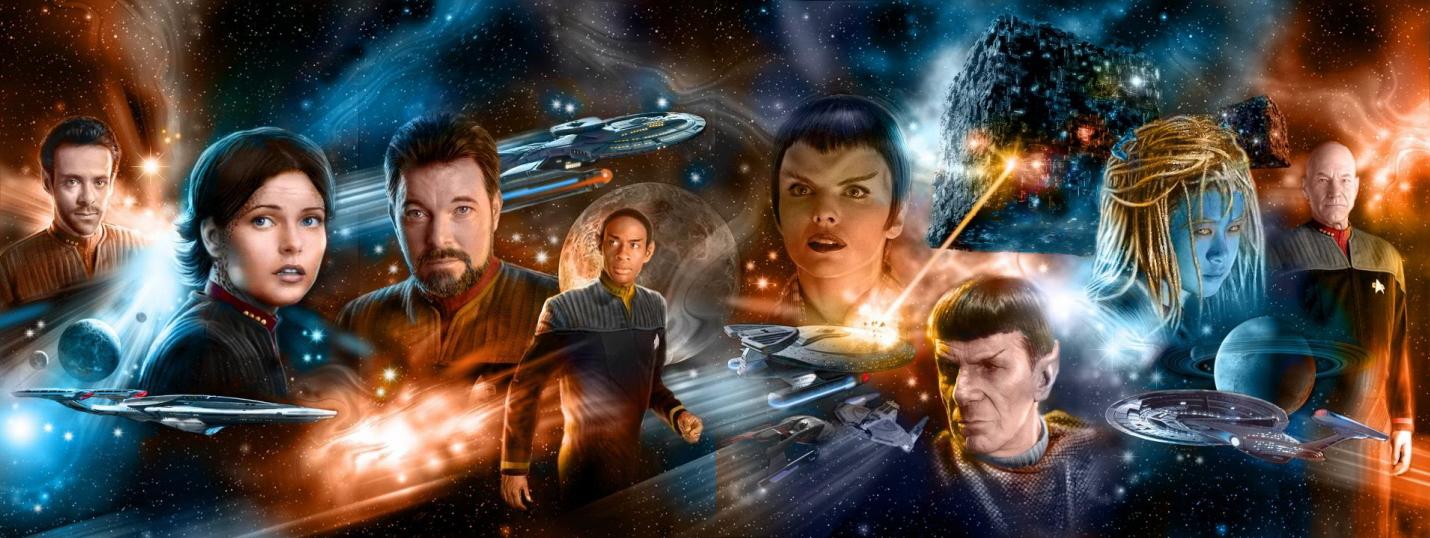Star Trek: Typhon Pact #3 Rough Beasts of Empire book review

The third book in the Typhon Pact series is here. Rough Beasts of Empire was written by David R. George III back in 2011. It’s a book of two parts: the first focuses on Benjamin Sisko (from Deep Space Nine) in the post Destiny era, and the second focuses on Spock and his quest for the reunification of Vulcan and Romulus.
Major spoilers ahead for both this book and Deep Space Nine (the tv series)
Before I get into the details of this review, I’m going to get the obvious stuff out of the way first: the Benjamin Sisko storyline sucks, while the Spock storyline is pretty good. In other words, Rough Beasts of Empire is about 50% of a good book.
Okay, now that I’ve got that out of the way — I will also point out that, despite this book being #3 in the Typhon Pact series, it is chronologically the first. So now it makes a lot of sense why people recommend reading this one before Typhon Pact #1 Zero Sum Game and Typhon Pact #2 Seize The Fire.
I haven’t read the other Deep Space Nine books set after the series finale, so coming into this novel, I wasn’t sure what Benny Sisko had been up to all these years. Deep Space Nine ended with him becoming a pseudo-God, adopted by the Bajoran prophets. Now, he’s back in corporeal form and helping with the whole Borg invasion thing (see Star Trek: Destiny).
But, as other reviews have pointed out, the Sisko we see in Rough Beasts of Empire feels divorced from the character we came to know and love on the show. The Bajoran Prophets have stopped returning his texts and they’ve unfriended him on Facebook. And in the wake of the recent Borg destruction, he’s convinced himself that if he stays with his wife (Kassidy Yates) and daughter, he’s doomed to a life of misery (because that’s what the prophets said would happen in the show).

I have stated in earlier reviews that one of my three golden rules of tie-in novels is that no character should behave incongruently with their onscreen counterpart. Unfortunately, the Sisko storyline is an epic fail when held up against this rule. After watching him struggle for seven seasons as a single father, he then abandons his wife and child to the same fate. And I won’t even get into the racial aspects of it either. Safe to say, I think Avery Brooks would never have dreamed Sisko could take such a huge step back.
However, it’s not all bad. I found the Spock/Romulan storyline to be a pleasant surprise. Spock and his small group of comrades have been secretly running a movement to unify the Vulcan and Romulan people. For those who don’t know, Romulans and Vulcans share a common heritage but developed vastly different cultures. I’m not typically an enthusiast of Romulan stories — and although it was a bit slow to start with, I found myself spellbound by the Romulan plotting, backstabbing and intrigue.
Essentially, Spock pitches the idea of decriminalising the reunification movement, suggesting that it would help encourage the unification of the fractured Romulan empire — Donatra controls one half while Tal’Aura controls the other. But ultimately, he is used by Tal’Aura, who takes control of the empire… only to find herself slumped over and drooling on the floor. Because lurking in the background is the Tzenkethi, secretly running the show.

I didn’t love the final twist, as I felt that the Tzenkethi were able to pull the Romulan puppet strings a bit too easily. After all that juicy plotting and scheming by Tal’Aura and co, it all came to naught, and for me, it felt a little flat. Nevertheless, it was nice to see the post-Nemesis/Romulan plot continue from earlier relaunch books such as Death In Winter and Taking Wing.
The last thing worth mentioning is author David R. George III’s writing style. George Orwell once said:
Never use a long word where a short one will do. If it is possible to cut a word out, always cut it out.
It’s safe to say David R. George III does not subscribe to this school of writing. Firstly, he uses some pretty obscure words, particularly in the book’s first half. Here are a few examples:
- A surfeit of powerful emotions threatened to overwhelm him
- The grave expression on her young face presaged her answer
- The ancient manuscript—it antedated the city itself
Now, I might just be a bit of a dummy, but I had to look up what each of those words means — surfeit, presaged and antedated are not exactly words commonly used in everyday language. Furthermore, his prose is verbose. Very verbose. Often there would be a line of dialogue, followed by 2-3 paragraphs outlining that character’s inner thoughts and feelings before the next line of dialogue appears. Sometimes I wanted to scream, Just let the characters speak!
It’s not that he can’t write. Far from it, much of the time David R. George III writes beautifully. But he lacks restraint. It feels at times that his goal is to impress the reader, rather than immerse the reader in the fictional world. If I want literary fiction, I’ll read David Foster Wallace. If I want fun escapist fiction, I’ll read Star Trek.
Overall, Rough Beasts of Empire is probably the best of the three Typhon Pact books thus far, but not by much. It’s a shame the Sisko storyline was such a fail because the book’s other half is a damned decent read. Pocketbooks (the publisher) was in financial turmoil at the time, and the book had multiple editors due to staffing changes — so perhaps that caused some issues. Nevertheless, it’s a novel that shows tremendous potential, and while I didn’t love it, I am looking forward to reading more David R. George III.